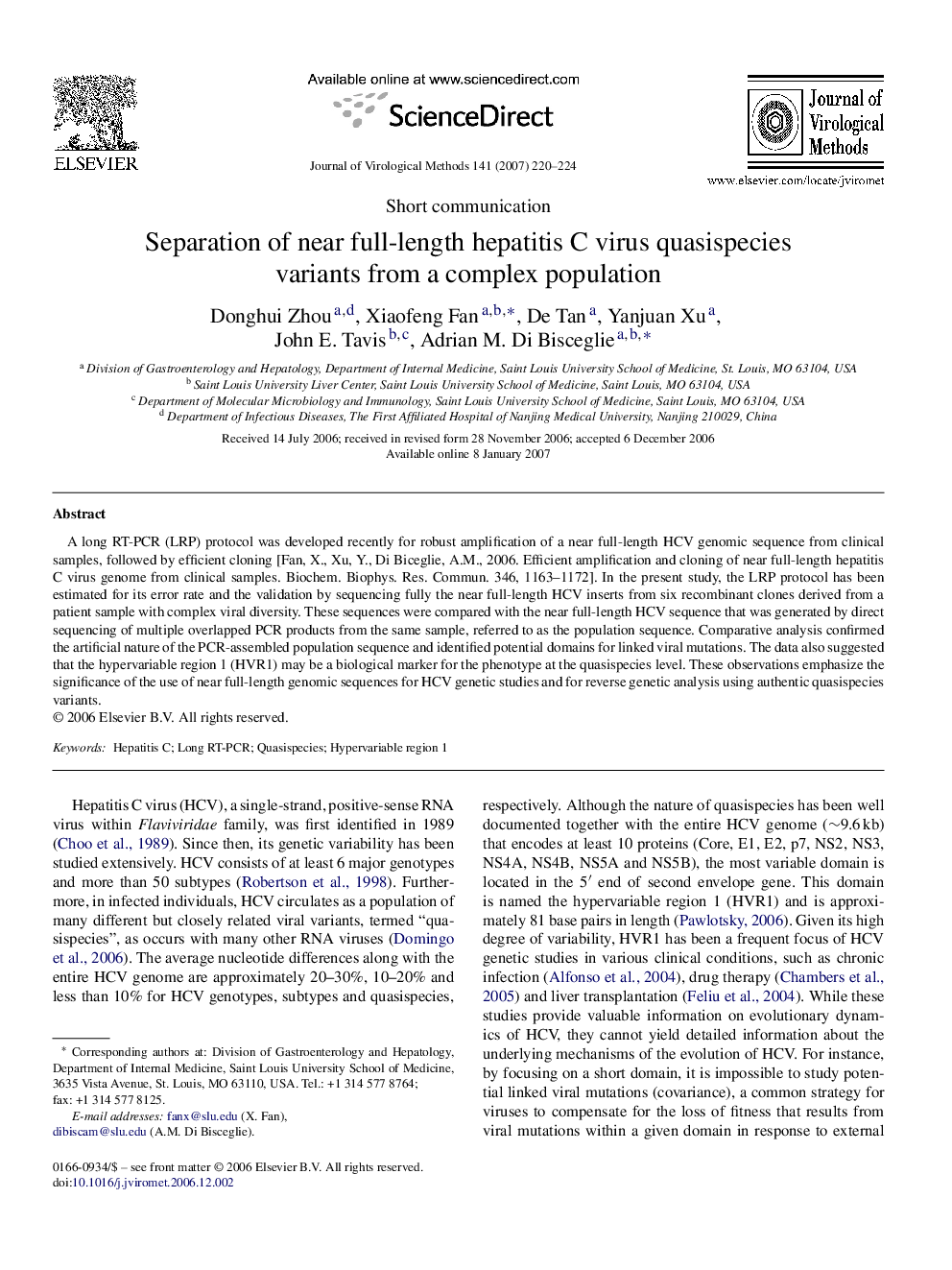| Article ID | Journal | Published Year | Pages | File Type |
|---|---|---|---|---|
| 3408058 | Journal of Virological Methods | 2007 | 5 Pages |
A long RT-PCR (LRP) protocol was developed recently for robust amplification of a near full-length HCV genomic sequence from clinical samples, followed by efficient cloning [Fan, X., Xu, Y., Di Biceglie, A.M., 2006. Efficient amplification and cloning of near full-length hepatitis C virus genome from clinical samples. Biochem. Biophys. Res. Commun. 346, 1163–1172]. In the present study, the LRP protocol has been estimated for its error rate and the validation by sequencing fully the near full-length HCV inserts from six recombinant clones derived from a patient sample with complex viral diversity. These sequences were compared with the near full-length HCV sequence that was generated by direct sequencing of multiple overlapped PCR products from the same sample, referred to as the population sequence. Comparative analysis confirmed the artificial nature of the PCR-assembled population sequence and identified potential domains for linked viral mutations. The data also suggested that the hypervariable region 1 (HVR1) may be a biological marker for the phenotype at the quasispecies level. These observations emphasize the significance of the use of near full-length genomic sequences for HCV genetic studies and for reverse genetic analysis using authentic quasispecies variants.
